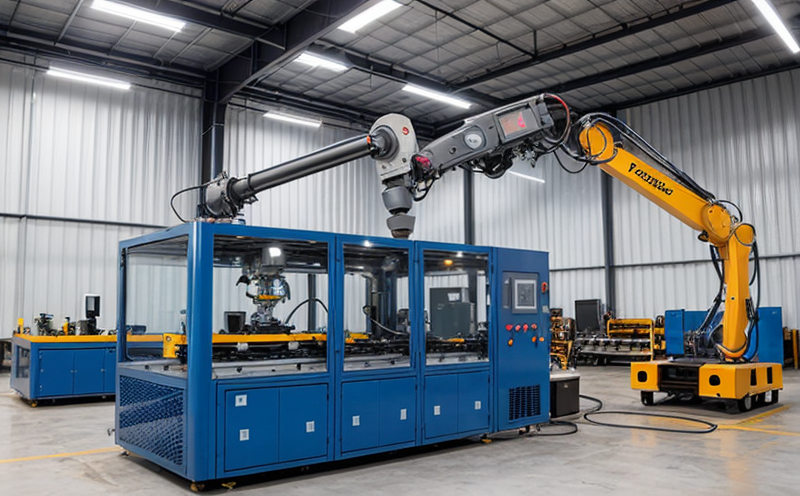ISO 18646 Endurance Testing of Industrial Robots
The ISO 18646 standard specifies requirements and testing procedures aimed at ensuring that industrial robots are capable of sustained operation under defined working conditions. This service focuses on the endurance testing aspect, which is critical for quality managers, compliance officers, R&D engineers, and procurement professionals involved in selecting, deploying, or certifying robotic systems.
Endurance testing involves subjecting a robot to continuous operation over an extended period while monitoring various performance metrics such as precision, speed, and energy efficiency. This process helps identify potential failures that could arise from prolonged use, ensuring the reliability and safety of industrial robots in manufacturing environments.
The testing procedure typically follows these steps:
- Preparation of the robot for testing according to ISO 18646 guidelines.
- Setting up the test environment with predefined tasks that simulate real-world operations.
- Initiating continuous operation and recording data on performance metrics.
- Monitoring the robot's behavior during the test, including any deviations from expected performance.
- Data analysis to determine compliance with ISO 18646 standards.
- Reporting findings and recommendations for improvements or adjustments.
The primary goal of this service is to provide comprehensive testing that ensures industrial robots meet the highest standards of reliability, safety, and efficiency. By adhering strictly to ISO 18646, we ensure our clients have access to robust data that can support their compliance efforts and enhance operational excellence.
Understanding the nuances of industrial robotics allows us to tailor tests specifically for each client's requirements. For example, if a company is focused on precision assembly, we will design test scenarios that closely mimic those conditions. Similarly, for those concerned with energy consumption in large-scale manufacturing processes, our testing can highlight areas where improvements could lead to significant cost savings.
In addition to the technical aspects of ISO 18646 compliance, this service also addresses broader implications such as workforce development and training programs that may be necessary following successful endurance testing. By ensuring robots are robust enough to handle extended periods without degradation, we support continuous improvement in manufacturing processes and contribute to safer working environments.
Our team of experts understands the importance of long-term reliability and safety in industrial applications. Through rigorous testing protocols aligned with ISO 18646, we provide assurance that robotic systems will perform consistently over time—a crucial factor for any organization aiming to maintain high levels of productivity and quality control.
Customer Impact and Satisfaction
Enhanced reliability of robotic systems leading to fewer unexpected breakdowns.
Increased efficiency in manufacturing processes resulting in reduced downtime.
Better alignment with international standards, improving market access for clients.
Our focus on providing accurate and reliable testing results fosters long-term partnerships based on trust and mutual success. Client satisfaction is paramount, and we strive to exceed expectations through consistent quality and expert service.
International Acceptance and Recognition
The ISO 18646 standard is widely accepted across various countries, ensuring that testing results are recognized globally. This broad acceptance simplifies compliance efforts for multinational companies operating in diverse regions. By adhering to this standard, we contribute to the harmonization of quality benchmarks worldwide.
Our laboratory has been accredited by reputable bodies such as ISO/IEC 17025 and is committed to maintaining high standards of integrity and accuracy. This accreditation underscores our commitment to delivering reliable test results that are respected internationally.
Environmental and Sustainability Contributions
Energy-efficient robotic systems lead to reduced environmental impact through lower energy consumption during prolonged operation.
Prolonged use of tested robots minimizes the need for frequent replacements, thereby reducing waste generation.
By prioritizing sustainability in our testing processes, we support clients' broader goals towards greener manufacturing practices. Our efforts align with global initiatives aimed at minimizing the ecological footprint associated with industrial activities.





